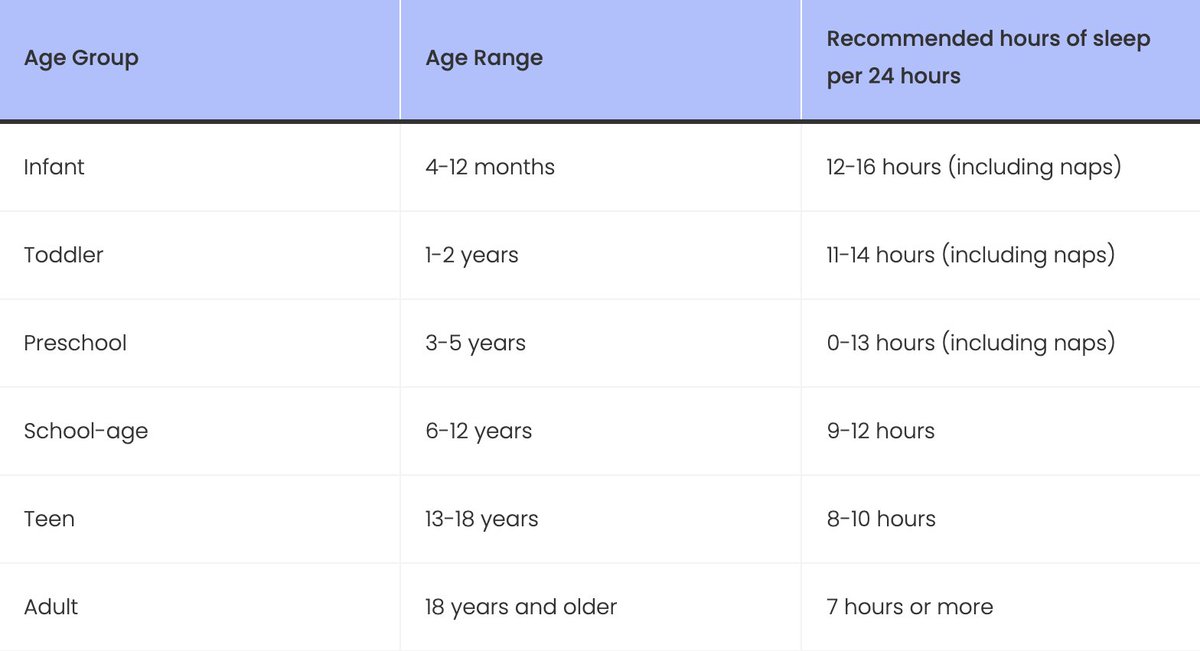The Effects of Long-Term Sleep Deprivation
This article looks at the effects of long-term sleep deprivation. It discusses how it can lead to heart disease, dementia, Alzheimer's, type 2 diabetes, high blood pressure, depression and anxiety, obesity and weight gain, and reduced cognitive function.

Dan Go
High Performance Coach To Entrepreneurs | Helping 1 million transform their lives by 2027. Tweets on health optimization. Sign up for free strategy call 👇🏼

-
If you get less than 7 hours of sleep a night, read this:
— Dan Go (@FitFounder) April 15, 2023 -
Long term sleep deprivation can lead to:
— Dan Go (@FitFounder) April 15, 2023
· Heart disease
· Dementia
· Alzheimer's
· Type 2 diabetes
· High blood pressure
· Depression and anxiety
· Obesity and weight gain
· Reduced cognitive function
You are not your best when you don't get enough sleep. Let's fix that. -
How much sleep do you need?
— Dan Go (@FitFounder) April 15, 2023
The American Academy of Sleep Medicine reviewed hundreds of research studies about sleep duration & health outcomes.
They came to the conclusion that healthy adults should get at least 7 hour of sleep a night.
Source: https://t.co/k6bQArXZpS pic.twitter.com/MXqftZlVLB -
Some basic tips to improve your sleep are:
— Dan Go (@FitFounder) April 15, 2023
· Avoid alcohol
· Exercise daily
· Going to sleep at the same time every night
· Remove electronic devices, such as TVs, computers & smart phones from the bedroom.
Scroll below for more advanced tips 👇 -
Fix your environment
— Dan Go (@FitFounder) April 15, 2023
· Get blackout shades
· Turn on a white noise machine
· Start dimming your lights once the sun goes down
· Set your room temp between 60 to 67 degrees Fahrenheit
The best way to ensure a night of quality sleep is to create an environment that promotes it. -
The 10-3-2-1 Method
— Dan Go (@FitFounder) April 15, 2023
10 hours before bed stop drinking coffee to avoid caffeine.
3 hours before bed stop eating to rest your digestive system.
2 hours before bed stop drinking liquids to avoid waking up to pee.
1 hour before bed stop looking at screens to fall asleep faster. -
Get 15-30 minutes of morning sun exposure
— Dan Go (@FitFounder) April 15, 2023
A good night of sleep starts first thing in the morning.
Your eyes are the pathway to turning on your circadian rhythms.
When you get sunlight on them upon waking you turn on your circadian rhythm setting the stage for sleep later on. -
Take a warm bath or hot shower
— Dan Go (@FitFounder) April 15, 2023
Warm water raises your body temperature and then lowers it, which signals your body that it's time for bed.
Warm water also relaxes your muscles relieving tension & can be used as a calming experience to reduce stress & anxiety. -
Mouth Tape
— Dan Go (@FitFounder) April 15, 2023
A big disruptor of sleep is mouth breathing, which has been shown to promote sleep apnea.
By taping the mouth you breathe through the nose, which relaxes the body & can lead to deeper sleep.
Do not do this if you have nasal issues that prevent you from breathing. -
Take supplements
— Dan Go (@FitFounder) April 15, 2023
Magnesium glycinate & L-theanine helps relax both the brain and body before bed.
Apigenin promotes sleepiness & has been shown to reduce insomnia.
Glycine has a calming effect on your brain & helps lower your body temperature to help you stay asleep. -
Getting quality sleep is an underrated way to optimize your health & body. You sleep for 1/3 of your life so why not make it awesome?
— Dan Go (@FitFounder) April 15, 2023
If you got value out of this thread:
1. Follow me @FitFounder for more of these
2. RT the tweet below to share this thread with your friends https://t.co/nLaNjS27CY -
The most underrated way to improve your health is by getting better sleep.
— Dan Go (@FitFounder) April 15, 2023
Here’s a guide on the system we use to help our clients 10x the quality of their sleep.
Click below to download it for free:https://t.co/y8JyEuUtpm
